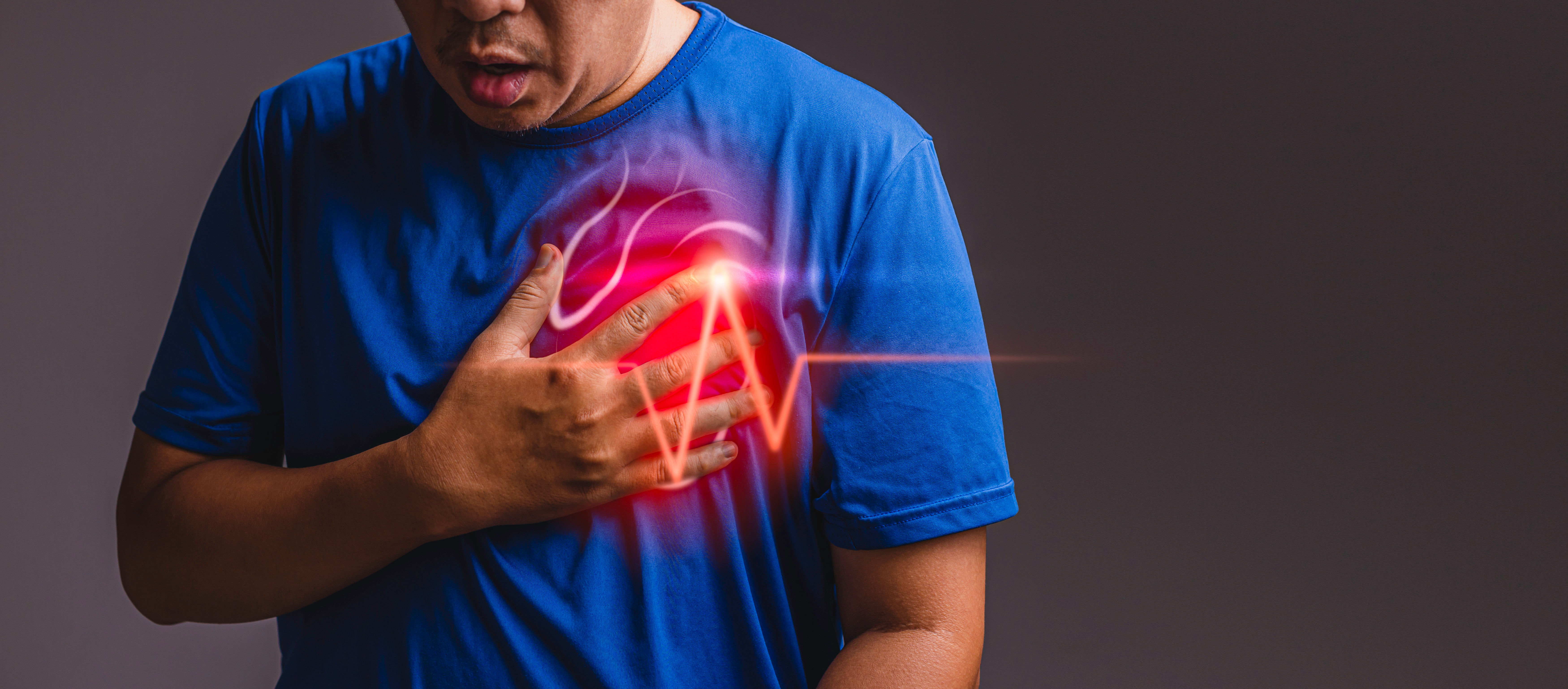Your Guide to a Healthy Bladder: 10 Essential Tips
Discover 10 essential tips for maintaining a healthy bladder, from hydration and diet to pelvic floor exercises and smart lifestyle choices.

Written by Dr. Dhankecha Mayank Dineshbhai
Reviewed by Dr. Vasanthasree Nair MBBS
Last updated on 13th Jan, 2026

Introduction
We often take our bladder for granted—until something goes wrong. This incredible, muscular organ works tirelessly behind the scenes to filter waste from our bodies. But when bladder issues like frequent urination, discomfort, or incontinence arise, they can significantly impact our quality of life. The good news is that many bladder problems are preventable with simple, proactive habits. This comprehensive guide will walk you through ten essential tips to keep your bladder healthy and functioning optimally for years to come. From what you drink to how you exercise, we'll cover the lifestyle choices that make a world of difference. Let’s dive in and give your bladder the care it deserves.
Understanding Your Bladder: More Than Just a Storage Tank
Your bladder is more complex than you might think, with functions that go far beyond storing urine.
The Anatomy of Urination
The process of urination is a coordinated effort between your brain, nerves, and bladder muscles. When you decide it's time to go, your brain signals the bladder's detrusor muscle to contract, squeezing out the urine. Simultaneously, it tells the sphincter muscles at the bladder’s outlet to relax, allowing urine to flow out through the urethra. When this system works in harmony, urination is effortless.
Why Bladder Health is Crucial for Overall Well-being
A healthy bladder is a cornerstone of your overall health. It allows you to stay hydrated without constant disruption, sleep through the night uninterrupted, and engage in physical activity with confidence. Conversely, chronic bladder problems can lead to sleep deprivation, anxiety, social isolation, and skin infections. Prioritising bladder health is an investment in your daily comfort and long-term wellness.
Hydration Habits: The Foundation of Bladder Health
Hydration is one of the simplest yet most powerful ways to protect your bladder.
How Much Water is Just Right?
The age-old advice of eight glasses a day is a good starting point, but individual needs vary based on activity level, climate, and health. A better indicator is the colour of your urine. Aim for pale yellow or clear urine. Dark yellow urine often signals dehydration, which can concentrate urine and irritate the bladder.
Recognising the Signs of Dehydration and Over-hydration
While dehydration is a common concern, over-hydration is also possible. Constantly drinking large amounts of water can lead to frequent urination, disrupting sleep and daily activities. Listen to your body: drink when you’re thirsty and increase intake during exercise or hot weather. If you find yourself waking up multiple times a night to urinate (nocturia), try limiting fluids in the two hours before bedtime.
Consult an Urologist for the best advice
Dietary Choices: Fueling and Protecting Your Bladder
What you consume daily can either irritate or support your bladder.
Common Bladder Irritants to Limit
Certain foods that irritate the bladder are well-known culprits. These include:
- Caffeine: Found in coffee, tea, fizzy drinks, and chocolate, caffeine is a diuretic and a bladder stimulant.
- Alcohol: Another diuretic that can increase urine production and irritate the bladder.
- Spicy Foods: Chilli peppers and strong spices can be problematic for some people.
- Acidic Foods: Tomatoes, citrus fruits and juices, and vinegar can aggravate symptoms.
- Artificial Sweeteners: Some people report sensitivity to sweeteners like aspartame and saccharin.
- Note: You don't need to eliminate these entirely. Try keeping a food diary to identify your personal triggers.
Bladder-Friendly Foods to Embrace
Focus on a balanced diet rich in fibre (to prevent constipation, which can pressure the bladder), lean proteins, and non-acidic fruits and vegetables like pears, blueberries, and green beans. The best drinks for bladder health include plain water and herbal teas like peppermint or chamomile.
The Power of Pelvic Floor Muscles
Strengthening your pelvic floor muscles is one of the most effective ways to prevent bladder leakage.
Finding and Engaging Your Pelvic Floor
The easiest way to locate these muscles is to try to stop the flow of urine mid-stream. The muscles you clench to do this are your pelvic floor muscles. (Note: Only do this as a test once or twice; don't make a habit of stopping urination.)
A Simple Kegel Exercise Routine for Beginners
- Pelvic floor exercises, or Kegels, are simple and can be done anywhere.
- Tighten your pelvic floor muscles and hold for 3–5 seconds.
- Relax completely for 3–5 seconds.
- Repeat this 10–15 times in a row.
- Aim for at least three sets per day. Consistency is key to seeing improved bladder control within a few weeks to months.
Smart Bathroom Habits for Long-Term Health
The way you approach toilet habits can significantly influence bladder function.
Don't "Just Go": The Importance of Listening to Your Body
Avoid going to the bathroom "just in case." This can train your bladder to hold smaller amounts of urine. Instead, try to urinate only when you feel a genuine, strong urge. Also, take your time and ensure you fully empty your bladder each time to reduce the risk of infections.
The Right Way to Urinate: Posture and Relaxation
For both men and women, proper posture can help. Leaning slightly forward and placing your feet on a small footstool can help relax the pelvic floor muscles, making it easier to empty the bladder completely.
Lifestyle Factors That Impact Your Bladder
Your day-to-day choices can directly impact your bladder health.
Maintaining a Healthy Weight to Reduce Pressure
Excess body weight, especially abdominal fat, increases pressure on the bladder and pelvic floor muscles. This can contribute to stress incontinence. Losing even a small amount of weight can lead to a noticeable improvement in bladder control.
The Link Between Smoking and Bladder Cancer
Smoking is the single greatest risk factor for bladder cancer. Harmful chemicals from tobacco are filtered by the kidneys and concentrated in the urine, where they can damage the bladder lining for extended periods. Quitting smoking is one of the best things you can do for your bladder health.
Listening to Your Body: When to Pay Extra Attention
Recognising changes early helps prevent serious bladder problems.
Identifying Potential Symptoms of a Bladder Problem
Be aware of changes such as:
- A persistent, urgent need to urinate.
- Frequent urination (more than 8 times a day).
- Pain or burning during urination.
- Blood in the urine (haematuria).
- Cloudy or strong-smelling urine.
- Bladder leakage or incontinence.
The Importance of Preventative Check-ups
Regular doctor visits are crucial. If you experience any of the above symptoms of a weak bladder or if your condition does not improve after trying these methods, it’s important to seek professional advice. Consulting a urologist online with Apollo24|7 can be a convenient first step for evaluation and guidance. For certain symptoms like blood in urine, a physical examination and tests like a urinalysis may be necessary, which can be arranged through services like Apollo24|7.
Conclusion
Taking proactive steps today can help you maintain strong bladder health for years to come.
Your bladder’s health is largely within your control. By incorporating these ten essential tips—prioritising hydration, making smart dietary choices, strengthening your pelvic floor, and adopting healthy lifestyle habits—you can build a strong foundation for long-term urinary wellness. Remember, consistency is more important than perfection. Start with one or two changes, like carrying a water bottle or practising Kegels during your commute, and gradually build from there. Paying attention to your body’s signals is the most powerful tool you have. If you notice persistent issues, don’t hesitate to seek professional help. Taking proactive steps today will ensure your bladder continues to serve you well, allowing you to live life with confidence and comfort.
Consult an Urologist for the best advice
Consult an Urologist for the best advice

Dr. Rohit Bhattar
Uro Oncologist
14 Years • MBBS, MS, MCh (Urology), Fellowship in Uro-oncology and Robotic Urology (United Kingdom)
Ahmedabad
Apollo Hospitals Gandhinagar, Ahmedabad
(100+ Patients)

Dr. Gaurab Dasgupta
Urologist
14 Years • MBBS, MS General Surgery, MCH Urology, FMAS
Kolkata
MCR SUPER SPECIALITY POLY CLINIC & PATHOLOGY, Kolkata

Dr Anupam Sharma
Urologist
18 Years • MBBS, MS(Gen Surgery), DNB (Urology)
Delhi
Apollo Hospitals Indraprastha, Delhi
(25+ Patients)

Dr. Dhruv B. Patel
Urologist
12 Years • MBBS, MS, DrNB (Urology - IKDRC, Ahmedabad)
Ahmedabad
Apollo Hospitals Gandhinagar, Ahmedabad
(25+ Patients)

Dr. Prabir Basu
Urologist
19 Years • MBBS, MS General Surgery, DNB Genito-Urinary Surgery
Jodhpur Park
Dr. Prabir Basu urology clinic, Jodhpur Park
(200+ Patients)
Consult an Urologist for the best advice

Dr. Rohit Bhattar
Uro Oncologist
14 Years • MBBS, MS, MCh (Urology), Fellowship in Uro-oncology and Robotic Urology (United Kingdom)
Ahmedabad
Apollo Hospitals Gandhinagar, Ahmedabad
(100+ Patients)

Dr. Gaurab Dasgupta
Urologist
14 Years • MBBS, MS General Surgery, MCH Urology, FMAS
Kolkata
MCR SUPER SPECIALITY POLY CLINIC & PATHOLOGY, Kolkata

Dr Anupam Sharma
Urologist
18 Years • MBBS, MS(Gen Surgery), DNB (Urology)
Delhi
Apollo Hospitals Indraprastha, Delhi
(25+ Patients)

Dr. Dhruv B. Patel
Urologist
12 Years • MBBS, MS, DrNB (Urology - IKDRC, Ahmedabad)
Ahmedabad
Apollo Hospitals Gandhinagar, Ahmedabad
(25+ Patients)

Dr. Prabir Basu
Urologist
19 Years • MBBS, MS General Surgery, DNB Genito-Urinary Surgery
Jodhpur Park
Dr. Prabir Basu urology clinic, Jodhpur Park
(200+ Patients)
More articles from General Medical Consultation
Frequently Asked Questions
What are the first signs of a weak bladder?
Early signs include a frequent and sudden urge to urinate, leaking urine when you cough or sneeze (stress incontinence), needing to urinate multiple times at night (nocturia), and occasionally not making it to the bathroom in time (urge incontinence).
Can holding your pee too long damage your bladder?
Yes, regularly holding urine for extended periods can over-stretch the bladder muscles, potentially weakening them over time and making it harder to fully empty your bladder. This can increase the risk of urinary tract infections (UTIs).
Are there any specific vitamins or supplements for bladder health?
Some supplements like D-Mannose are popular for UTI prevention, and Vitamin C can support the immune system. However, it's crucial to consult with a doctor before starting any new supplement regimen to ensure it's appropriate and safe for you.
How can I prevent UTIs naturally?
Key strategies include drinking plenty of water to flush out bacteria, urinating after sexual intercourse, wiping from front to back, and avoiding potentially irritating feminine products. Some people find cranberry juice helpful, but evidence is mixed, and it can be an irritant for others.
Is it normal to urinate more often as you age?
While some changes are common with age, a significant increase in frequency or urgency is not an inevitable part of ageing and should be discussed with a healthcare professional. It can often be managed with the lifestyle adjustments outlined in this article.




